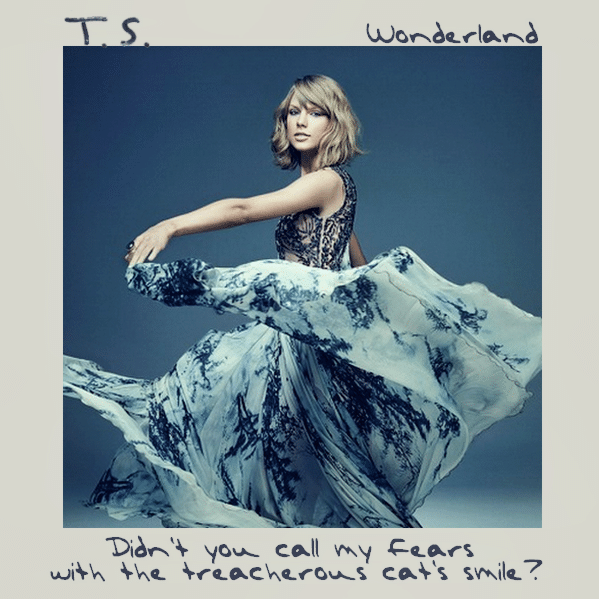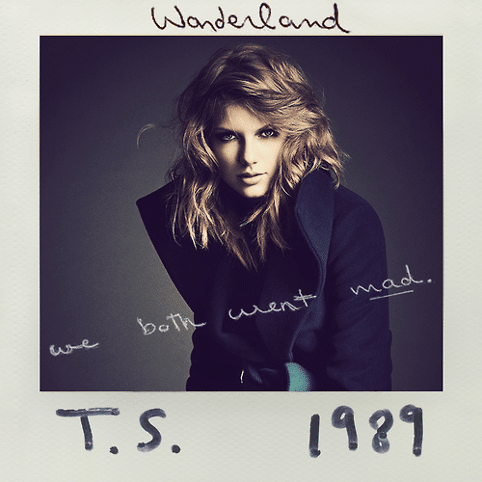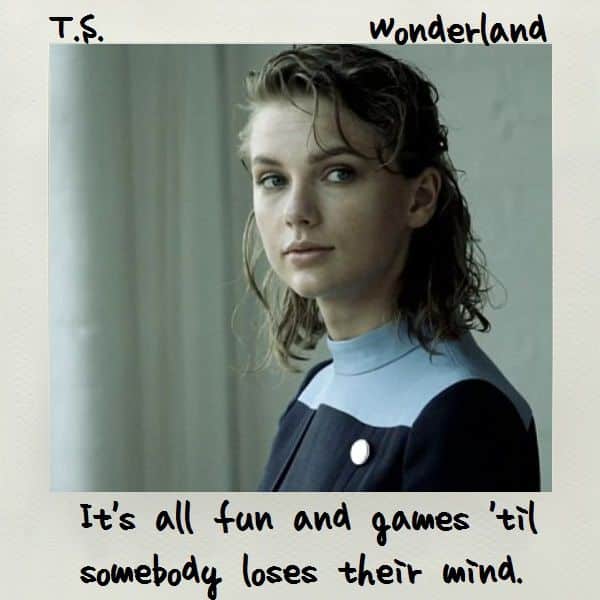
There's nothing quite like the electrifying atmosphere of a Taylor Swift concert—a sentiment my daughter, like thousands of other teenagers, wholeheartedly agrees with. After an exuberant 15-minute rundown of her recent concert experience, she mentioned a song that caught my ear: "Wonderland."
Now, I've never been a Swiftie, but what intrigued me was the song's heavy allusion to "Alice's Adventures in Wonderland," a subject I've always found fascinating. I promised my daughter I would write about it, so here goes my attempt to delve into the depths of Taylor Swift's lyrical genius through the lens of Lewis Carroll's whimsical world.
"Wonderland," a bonus track on Taylor Swift's fifth studio album, "1989," is a fascinating study in the whirlwind of emotions one experiences during the ups and downs of a complicated relationship. My daughter claims that the "unnamed, green-eyed man" in question is none other than Harry Styles. Though it's never explicitly mentioned in the song, she's quite adamant. But let's move past the speculative "Harry" narrative to explore the more exciting labyrinth—the All Things Alice.
The song captures the essence of "Alice's Adventures in Wonderland" remarkably well. It's a story about navigating the chaos of an exhilarating yet toxic relationship, metaphorically described as a tumble down a rabbit hole. This is brilliant on Swift's part, capturing the highs, lows, and general madness Alice encounters in her own nonsensical reality.
Lewis Carroll's work has always encapsulated a child's challenge in making sense of an adult world—something that Taylor Swift echoes in her lyrics. "It's all fun and games 'till somebody loses their mind," she sings, a sentiment that Alice would likely agree with were she dealing with toxic relationships instead of a confusing, alternate universe.
Taylor Swift is a master of infusing her lyrics with metaphors and references that can easily be unpacked. For instance, the opening lines about "flashing lights" and "taking a wrong turn" aptly describe how easy it is to get entangled in a fast-paced relationship, much like how Alice finds herself in Wonderland. And Taylor's question, "Haven't you heard what becomes of curious minds?" directly echoes Alice's own realization that her curiosity leads her into some tricky situations.
Also, it's worth noting that Harry Styles is from Cheshire, a point that's hard to overlook when considering the Cheshire Cat references throughout the song. My daughter, the young detective that she is, insists that this detail is more than coincidental. Yet, because nothing is explicitly said, we can't definitively conclude that the song is about him.

In the song's bridge, Taylor Swift sings, "And in the end, in Wonderland, we both went mad." The line is a clear nod to one of the most iconic quotes from "Alice's Adventures in Wonderland": "We're all mad here." In Lewis Carroll's story, madness isn't a condition to be feared; it's a form of maturation.
It's quite possible that Taylor Swift is referencing the same concept of "going mad" as a sort of coming-of-age realization that their exciting yet tumultuous relationship is unsustainable. Alternatively, she might be taking creative liberties with the concept of "madness," suggesting that the relationship spiraled out of control, driving both parties to emotional extremes.
In a poignant turn, Swift later compares the Cheshire Cat's enigmatic smile to the comfort she derived from her partner's own mysterious grin. Whether this smile is genuinely comforting or mischievously deceptive is left for the listener to decide.

As the song winds down, it leaves us with a repetition of the chorus, capturing the unending loop of emotions, much like Alice's adventures. Whether you're a Swiftie or not, the song brilliantly utilizes the metaphorical elements of "Alice's Adventures in Wonderland," paying homage to a story that continues to captivate audiences over a century and a half after its publication.
Whether you're a fan of Taylor Swift or not, there's no denying the lyrical prowess she exhibits in "Wonderland." Much like how Lewis Carroll's tale has transcended generations, Swift's song captures the complexity of adult relationships in a manner that resonates with a wide-ranging audience, myself included. And for that, I thank my daughter for introducing me to this musical treasure, as I discover that even in middle age, one can still fall down an unexpected rabbit hole and find something magical at the bottom.
Alice has been an enduring muse for various forms of art, from literature to music, and it's evident that her influence isn't waning anytime soon. As someone who appreciates both classic literature and the nuances of modern storytelling, I'm thrilled that Alice in Wonderland continues to inspire.